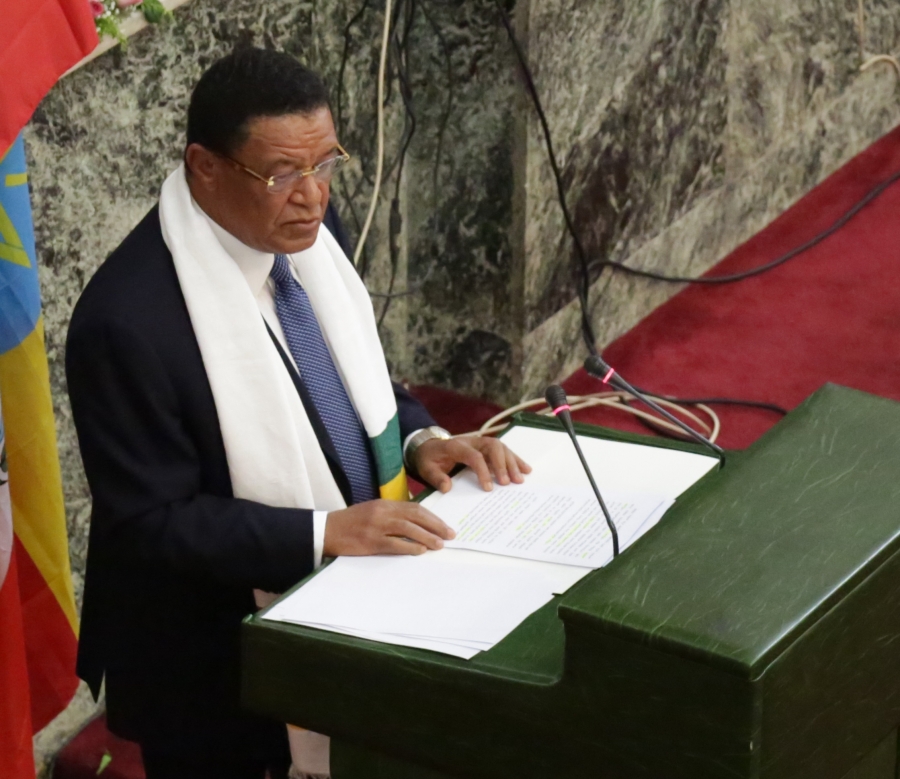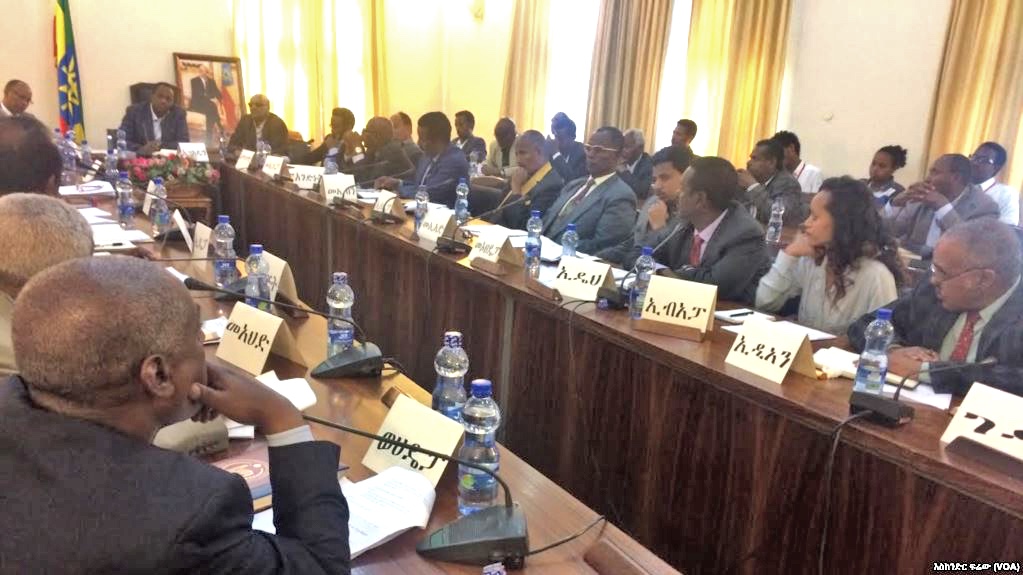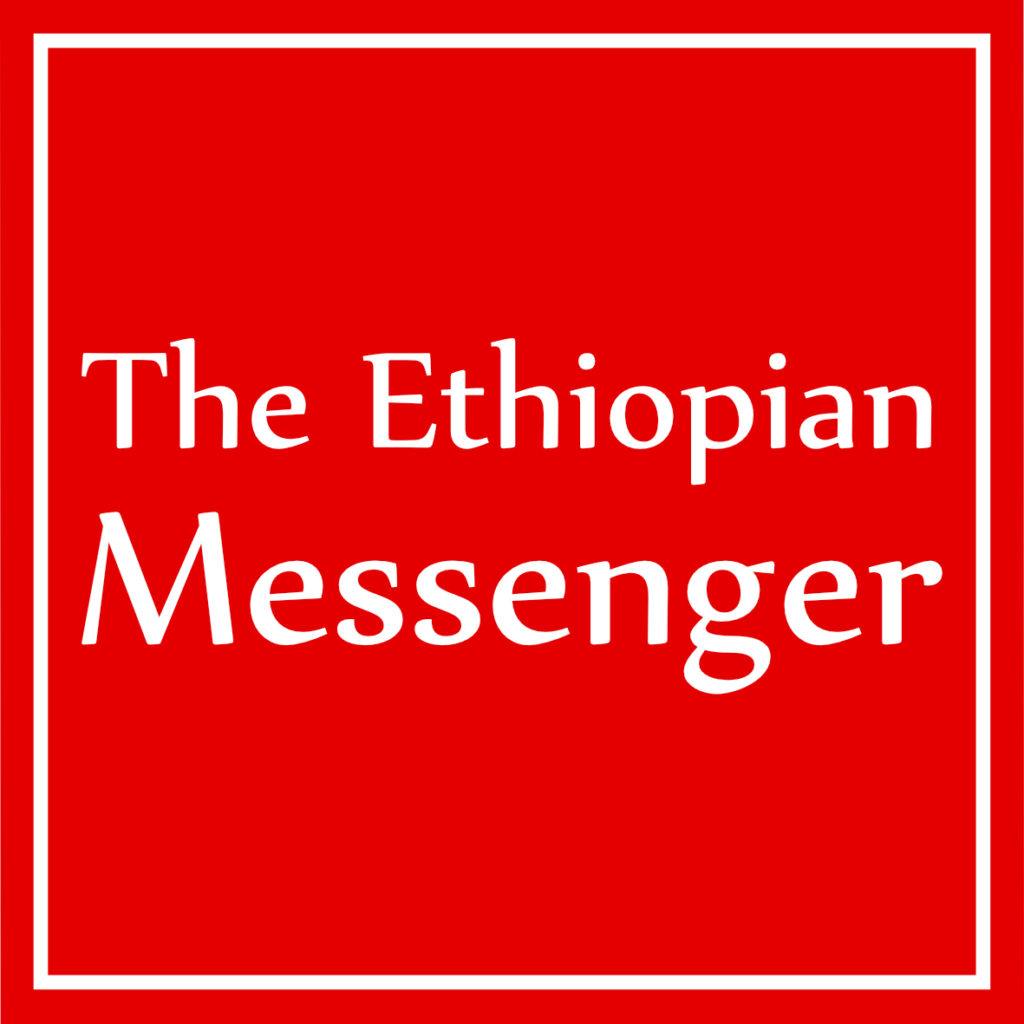This article was originally published in the 6th issue (April 2017) of The Ethiopian Messenger, the quarterly magazine of the Embassy of Ethiopia in Brussels.
A reform process was started at the end of 2016 to provide a concrete answer to the preoccupations of the public. The first objectives of these reforms was to address unemployment, bad governance and further widen political space. Since then, several steps have been made in these three areas.
In 2016, Ethiopia faced violent protests mainly driven by youth in the highly populated regional states of Oromia and Amhara, where high levels of unemployment persist despite the country’s strong economic growth.
The state of emergency was declared on 8th October 2016, in line with article 93 of the Constitution, to bring back peace and stability throughout the country. It also met a strong demand from the public to contain the destruction of public infrastructures such as water facilities, roads, bridges, schools, clinics and local industries. An Inquiry Committee was established by the House of Peoples Representatives to follow up the implementation of the state of emergency by visiting prisons and interviewing the apprehended youth about human right issues. In addition, the Ethiopian Human Right Commission made an intensive investigation and submitted its findings to the Parliament, which then voted resolutions both on the excessive use of force by law enforcement agents and on the killing of security officers by the protesters.
Lack of good governance, especially in services delivery sectors, corruption and increasing demand despite economic growth were identified among the root causes that ought to be addressed through a deep renewal of the leadership and reform activities in the aftermath of the protests. To address public grievances, the government of Ethiopia launched immediate and long-term reform efforts to bring back peace and security and further boost the confidence of investors, vital to economic growth, following the wide scale destructive protests that happened in the nation.

According to the Secretary of the Command post, Mr. Siraj Fergessa, Minister of Defence, the thousands of young people involved in the violent protests that took lives and destroyed public infrastructures will be enrolled in extensive trainings and awareness actions established up to the regional level. The training programs also aim at increasing awareness on their constitutional rights and duties; informing them about peaceful ways to exercise their constitutional rights and contribute to the democratisation process of the country without destroying economic facilities and affecting the very survival of the country. After the training, many young people expressed their regrets and promised to not take part in such destructive protests again, by saying in Amharic “አይደገምም” (“ayedegemem”, meaning “it will not happen again”). After a thorough assessment of the situation, the secretariat announced that the State of Emergency will be extended for four months. It is to be recalled that the public opinion on wether to lift the state of emergency or not shows that 82 percent of those who participated on the survey are in favour of maintaining the decree.
Dialogue between political parties
Though the Ethiopian state has more than three thousand years of history, its experience of democratic governance is very recent. For the past two decades, the country has been striving to introduce a multiparty electoral democratic system by establishing democratic institutions. According to the National Electoral Board of Ethiopia , there are 79 political parties at national and regional levels that have been registered and competing at the elections either as individual political parties or as fronts, coalitions or unions.
So far, the country has experienced five rounds of regional and national elections, that helped the country’s efforts to realize electoral democracy. During the last round of national elections, the ruling party won 500 seats out of 547 parliamentary seat, while the remaining 47 seats were won by the Stakeholders Party from the five regional states (Afar, Benishangul, Gambella, Harari and Somali). This victory of the ruling party can be explained by several factors: the first-past-the-post electoral system, the successive economic and social developments achieved by the coalition as well as the serious division among the opposition political parties. In the last election in 2015, nearly four million people have voted for the opposition, but failed to secure the 50 percent of the votes required to win a seat.

During the opening ceremony of the joint parliamentary session of the HPR and House of Federation, H.E. Dr Mulatu Teshome, President of the FDRE, made an inaugural speech focusing on the need to reform the electoral law and electoral regulations to accommodate the voices of the opposition and expand the political space in the country. The ruling party has also created institutions to strengthen the capacity of democratic institutions like the Human Right Commission, the Ombudsman, Office of the Federal Auditor General and the Federal Ethics and Anti-Corruption Commission. Furthermore, the Ethiopian People’s Revolutionary Democratic Front (EPRDF) has launched a political dialogue and negotiation with 21 political parties, including opposition parties that did not sign the Political Party Code of Conduct. This political parties dialogue can be seen as one of the reform initiatives taken to respond the public demand for more political inclusiveness and that will further contribute to the democratization process of the country.
The political consultations included five rounds of negotiations and all 21 political parties have already submitted their proposals to the House of Peoples Representative on how to manage the debate and the dialogue more effective and efficient. The proposal contains issues like who will lead the parties debate, who will give a press briefing to the medias and who will participate as a witness during the debate.
Political parties have agreed to develop a common framework document to guide the upcoming negotiation on a number of policy issues. The ruling party expressed its readiness to take the feedbacks and comments from the negotiations to adjust some legislations and regulations under each policy areas and to correct issues related to the implementations of its policies. The main opposition party, Medrek, defined its objective as resolving the problems of political space in the country, while the Geda political party stated that its main objective is to resolve the unemployment problems of the youth. During the political parties’ discussions, the ruling party EPRDF stated that the debate had to be all inclusive and should open debate to all regional and national political parties legally registered by the National Electoral Board of Ethiopia. However, Medrek’s views differed, as they suggested that only six political parties should participate in the debate. They finally agreed that only three representatives from each nationally registered political party would participate in the debate.

Until now, the political parties negotiation has been positive. All parties have agreed on the procedural aspects to begin the actual policy debate. Debates were calm, inclusive and included compromises, which is essential for the long-term democratisation processes of the country. Furthermore, the political parties established a Joint Executive Committee with seven members mandated to develop a common framework document that will serve as a guide for the policy negotiations between the parties.
Other issues agreed on include the objectives of the negotiations, which political parties will participate in the debate, the agendas of the negotiation, the designation of speakers and leadership during the negotiations, the role of observers, ethics and discipline of the negotiations and logistics and administrative issues.
While the ruling party is flexible to the extent to negotiate with the opposition as a group or individually and to leave the role of moderating to the other parties, as politics is a sovereign and internal affair, the role of mediation should be left to Ethiopians.
Deep renewal and civil services evaluation
Following violent protests in some parts of the country, the government made a detailed analysis and promised to address the root causes of the dissatisfaction. These include first a lack of good governance, especially in the services delivery areas. Sectorial reform activities were quickly launched in response to the problem and have continued all over in the country, up to district level. The government has developed a framework document and all the public servants, including those at desks officer level, had to make a self-evaluation on the role they have played with regards to aggravating the public grievances in terms of corruption and lack of providing fair and just services to the ordinary citizen. Hundreds of public servants and government officials involved in rent-seeking and corruption activities were held accountable following investigation by law enforcement bodies. Officials who did not provide the expected services were removed from their positions. Moreover, millions of birr and thousands of hectares of inappropriately transferred land and other public properties were returned to the people and to the government.
The evaluation also led to a reshuffling of ministerial posts at national and local district levels. The government of Ethiopia has identified areas of corruption and rent seeking activities such as land and its leasing to investors, over and under estimations of revenue, and grand government procurements.
The Oromia regional state, where some of the mass protests happened, led an inclusive public consultation up to local level, identified the individuals who aggravated the protests and held them accountable. According to the Oromia Regional State Communication Office, 14,000 political leaders were removed from their responsibilities due to lack of capacity, corruption and other rent-seeking activities. 250,000 hectares of land and around 7 million birr, two buildings and around 40 houses were confiscated and returned to the public. The Amhara Regional State also made an intensive evaluation that began by reshuffling the regional leaders up to the local level and removed around 1,300 local administrative and held some of them accountable. The South Nation, Nationalities and Peoples and Tigray Regional State have also made an intensive evaluation up to individual level and get rid of hundreds of local leaders and civil servants to resolve the good governance problems and the lack of fair economic distributions by making the corrupted officials accountable to justice.
Final preparations to implement the Youth Revolving Fund
Even though Ethiopia’s rapid economic growth has been creating one million job per year and the vigorous creation of Small and Medium Enterprises (SME) extricated thousands of youth out of poverty in rural and urban areas, one of the grievances of the youth involved in the protests concerned job opportunities and demanding more economic benefits.
Therefore, the government of Ethiopia has allocated around one billion dollars (both from Federal and Regional States’ sources) to a Youth Revolving Fund to create job
opportunities for young people throughout the nation, along with political reforms. A National Committee chaired by Mr. Demeke Mekonen, Deputy Prime Minister, was established to follow up the implementation of the fund.
The National Committee engaged with the responsible regional officials and stakeholders, including local civil society organizations, to discuss how to properly implement the fund to make sure it equally benefits all the youth. According to the National Bank of Ethiopia, 3,900 branch offices and other 1,700 micro finance institutions in the country are ready to provide financial and technical assistance and counselling to the youth to implement these projects. Furthermore, the Deputy Prime Minister has expanded the scope of the projects by providing training, granting working sheds in urban areas and farmland in rural areas and granting financial allocation which have already benefited 2.9 million youths throughout the country.
Conclusion
The recent violent protests not only cost hundreds of lives and inflicted damages in the tourism and investment sectors, but also temporarily affected the image of the country.
However, the peace and stability as well as the tourism flows and the economic growth of the country were maintained thanks to the effective implementation of the state of emergency with the collaboration of the people. FDI flow even increased by 35 percent in the last six months compared to the same period last year. Though under state of emergency, the country has hosted major regional and international conferences as well as several business meetings, which testifies of the peace and tranquillity of the country. The youth who were involved in the protests are getting back to the society and playing a positive role by starting small and medium businesses.
Political parties, for their part, yet to be seen though, have further agreed to modify rules, laws and regulations, build up democratic relationships among themselves and have agreed to provide the people with alternative policy options and help their constituencies to choose each party based on policy options, to increase the national consensus and the contribution of political parties to further strengthen the multiparty political system in the country.
Political parties have now to show more readiness by going beyond their individual political party interests. They should prioritize national interests by respecting the agreed principles of negotiations with due respect and tolerance among each other. The government of Ethiopia has continued its deep reform activities in the civil services sectors and has obtained remarkable outcomes in addressing the root causes of the protests such as lack of good governances down to the local level. The political parties’ negotiation is expected to expand and sustain the democratization process, for the prevalence of peace, stability and the economic developments of the country. It is also expected to increase the national consensus on various national issues, as democratization is a long-term process that needs the contributions of all political actors and strong democratic institutions.




